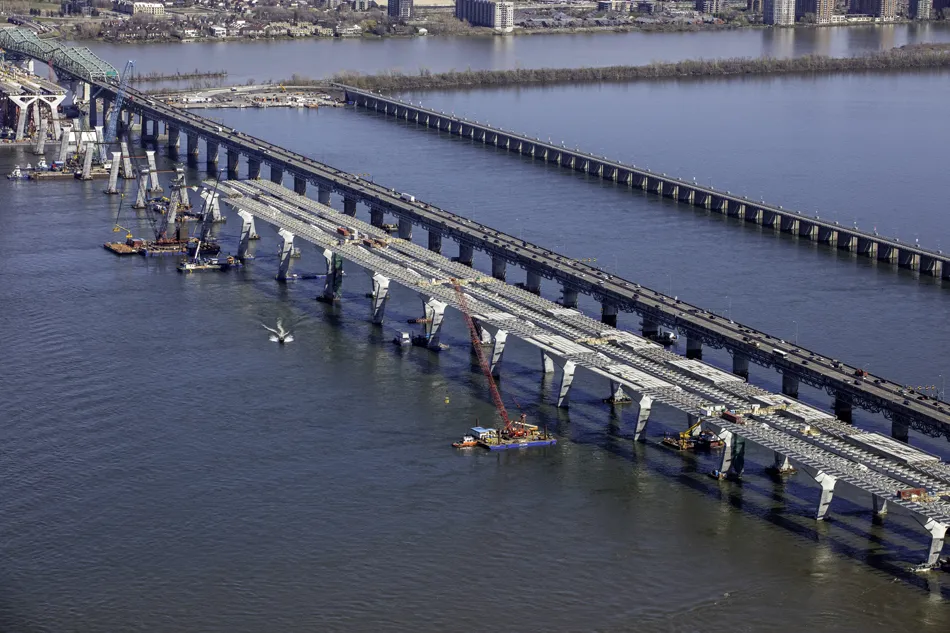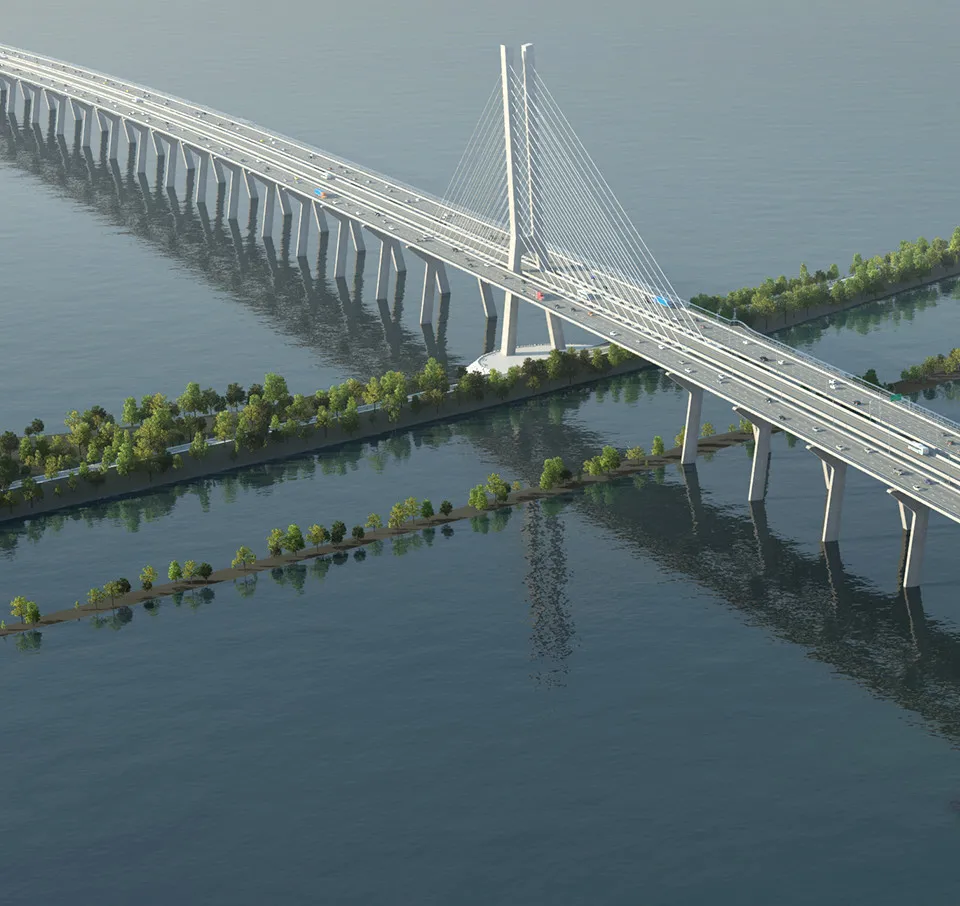The Federal Government of Nigeria gave the go-ahead for work to start on the planning and design of a new Niger bridge. The country’s leaders have approved a US$2 million (Nigerian Naira N325 million) “transactional advisory services” contract to assess how to design and build, finance and operate a “Second Niger Bridge.” Contractor Roughton International Limited has been given 16 months to come back with a detailed schedule of how to progress.
August 17, 2012
Read time: 2 mins
The Federal Government of Nigeria gave the go-ahead for work to start on the planning and design of a new Niger bridge.
The country’s leaders have approved a US$2 million (Nigerian Naira N325 million) “transactional advisory services” contract to assess how to design and build, finance and operate a “Second Niger Bridge.” Contractor6395 Roughton International Limited has been given 16 months to come back with a detailed schedule of how to progress.
At the same meeting, the Nigerian government also gave Roughton International the green light on a $1.9 million (N297 million) consultancy contract for a new road into Lagos’ Murtala Mohammed International Airport.
The “Second Niger Bridge” project is likely to be built using a public-private partnership arrangement said the country’s minister of works, Mike Onolememen, at the end of this week’s weekly Federal Executive Council (FEC) meeting chaired by president Goodluck Jonathan. The minister told local reporters that he “expected” that “ground-breaking” work would “start by the third quarter of 2013.”
According to Onolememen, “the Federal Government” is keen to “address Nigeria’s infrastructure deficit and improve the quality of public infrastructure services.” The public-private approach will be used to speed up this process he said, and the country will exploit “private sector investment” opportunities in order “to complement the drive towards bridging the country’s enormous infrastructure gap.”
“In view of this,” he added, “the Second Niger Bridge - which is a critical national infrastructure project – will form an essential link between the south west and south east (of Nigeria) and connect the cities of Onitsha and Asaba.”
The government has also decided to act on the Murtala Mohammed International Airport Road plan because the current highway is in a “deplorable condition” and it wants to create a new and much more impressive “gateway to Nigeria and Lagos.”
The country’s leaders have approved a US$2 million (Nigerian Naira N325 million) “transactional advisory services” contract to assess how to design and build, finance and operate a “Second Niger Bridge.” Contractor
At the same meeting, the Nigerian government also gave Roughton International the green light on a $1.9 million (N297 million) consultancy contract for a new road into Lagos’ Murtala Mohammed International Airport.
The “Second Niger Bridge” project is likely to be built using a public-private partnership arrangement said the country’s minister of works, Mike Onolememen, at the end of this week’s weekly Federal Executive Council (FEC) meeting chaired by president Goodluck Jonathan. The minister told local reporters that he “expected” that “ground-breaking” work would “start by the third quarter of 2013.”
According to Onolememen, “the Federal Government” is keen to “address Nigeria’s infrastructure deficit and improve the quality of public infrastructure services.” The public-private approach will be used to speed up this process he said, and the country will exploit “private sector investment” opportunities in order “to complement the drive towards bridging the country’s enormous infrastructure gap.”
“In view of this,” he added, “the Second Niger Bridge - which is a critical national infrastructure project – will form an essential link between the south west and south east (of Nigeria) and connect the cities of Onitsha and Asaba.”
The government has also decided to act on the Murtala Mohammed International Airport Road plan because the current highway is in a “deplorable condition” and it wants to create a new and much more impressive “gateway to Nigeria and Lagos.”









